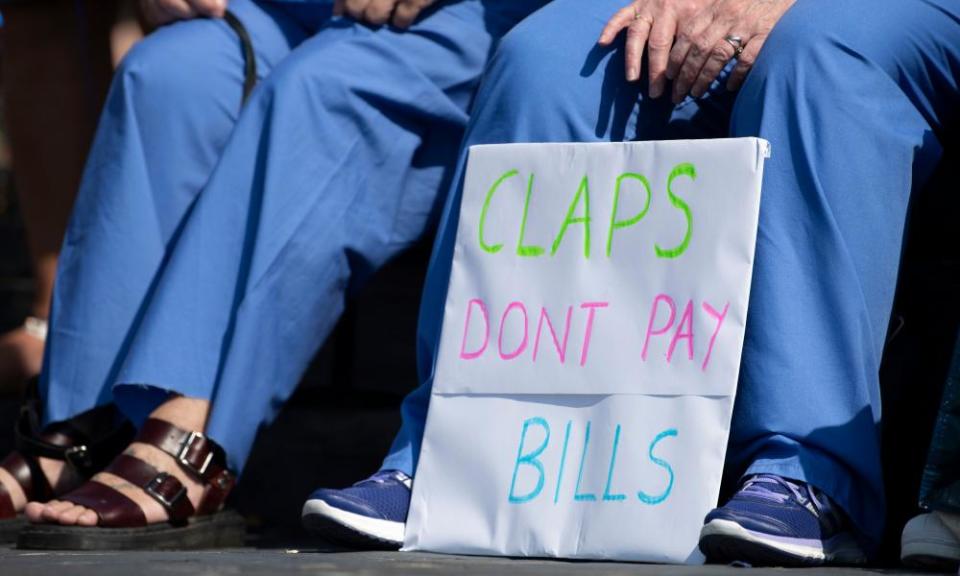‘It’s a lot of work being black in Britain’ – Tales from the Front Line … and Other Stories review
As the Covid-19 crisis raged this summer, Talawa theatre company began talking to black frontline workers. They interviewed the people we encounter most days, whose stories we rarely hear: teachers, train workers, hospital and supermarket staff. The first two plays to be released, for an online series based on those verbatim interviews, are quite often pained and sometimes bitter. A mental health worker is riled by the weekly clap for NHS workers (“it’s just a performance”); a teacher is dismayed by the lack of black doctors or nurses seen in news footage when there are so many in the workforce. Both speak of everyday racism.
But the monologues are not just about expressing anger at systemic injustice. They are miniature character studies, rich in insight and individual detail. They reveal a person and a life, as well as giving a depth of meaning to the high rates of Covid-related deaths among people of colour in Britain.
Jo Martin plays a teacher speaking about her pupils, her 80-year-old mother and herself. “You could tell the kids were worried because they went quiet,” she says, about the weeks leading up to lockdown. Teachers asked management for hot water in the school toilets and hand sanitisers in the classrooms but were denied both, even as the children grew frightened. And then there was George Floyd.” She sighs and talks of her own past, as painful experiences of racism rise to the surface; we also hear, heartbreakingly, of how her elderly mother is reminded of the way “she was treated by white patients when she first came here as a nurse.”

Directed by Talawa’s artistic director, Michael Buffong, Martin speaks from inside an empty classroom, as if addressing an interviewer off-camera. It gives the performance a direct, documentary feel without undercutting any of its dramatic poise. Sapphire Joy is a mental health recovery worker in the next play, directed by Kwame Asiedu, and she speaks her words not to camera but as an inner monologue, as if she is too tired to say them aloud. We hear that 15 of the 16 beds in a Covid ward are occupied by black men, that black women are least often given pain relief in hospital because they are regarded as “strong” and that black men in mental health wards are quick to be put in isolation because they are deemed “violent”.
It is a barrage of anecdotal proof of the prejudices within the system. “It’s a lot of work being black in Britain,” she reflects, but remains outwardly silent because “you can’t always be shouting back”.
At only 15 minutes long, both dramas carry a surprising degree of shock and power, given the familiar subject matter. Scripts are crafted so that they sound natural in their everyday speech but also deliberate, meditative, and the spoken words are accompanied by dancers (Rhys Dennis and Waddah Sinada) in the first film and movement in the second. Four more films will be released in January and March.
Buffong has said that the point of the project is to record the efforts of the black British community against Covid, so that they are not forgotten or erased in the way that many notable black Britons have been from official history. It is sad we need proof at all, but this is important testimony and it speaks its truths eloquently.
• Available online from 30 November.

 Yahoo Finance
Yahoo Finance 